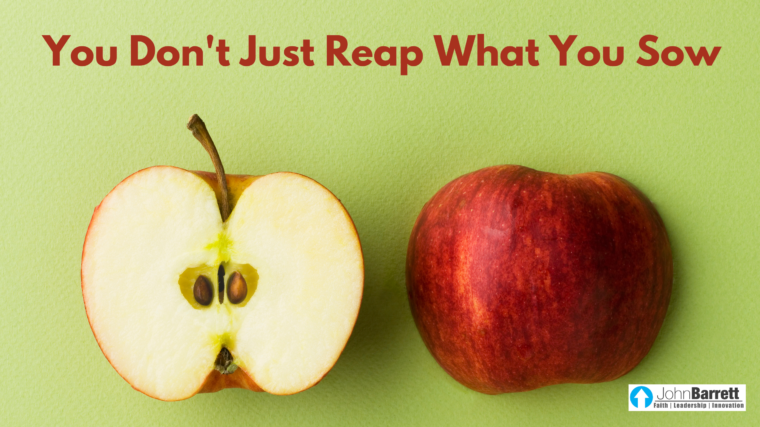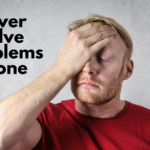
The saying “you reap what you sow” has been a staple in many cultures for centuries. It speaks to the idea that the results of our actions, whether positive or negative, will come back to us in some form or another. Of course, this notion is taken straight from God’s Word.
Galatians 6:7-9 (NIV)
7 Do not be deceived: God cannot be mocked. A man reaps what he sows. 8 Whoever sows to please their flesh, from the flesh will reap destruction; whoever sows to please the Spirit, from the Spirit will reap eternal life. 9 Let us not become weary in doing good, for at the proper time we will reap a harvest if we do not give up.
This “reap what you sow” is a powerful principle. However, there’s another layer to this concept that often goes overlooked: we don’t just reap what we sow; we multiply what we sow.
When we plant a seed in the ground, it doesn’t just grow into a single plant that produces a single fruit or vegetable. Instead, that one seed has the potential to multiply into dozens or even hundreds of plants, each of which can produce its own harvest. This principle holds true in every area of life, not just in agriculture.
For example, if we invest time and effort into building strong relationships with others, we don’t just reap the benefits of those relationships in the short term. Instead, those relationships can continue to grow and flourish over time, leading to new opportunities and connections that we could never have predicted.
Similarly, if we invest in our own personal growth and development, we don’t just reap the benefits of that growth at the moment. Instead, that growth can continue to multiply and produce fruit for years to come.
Of course, the same principle applies to negative actions as well. If we plant seeds of unhealthy conflict or negativity in our relationships, we can’t just expect to reap a small harvest of bad feelings. Instead, those negative actions can multiply and spread, causing long-lasting damage to our connections with others. Likewise, if we engage in destructive behaviors or habits, we can’t just expect to suffer the consequences in the short term. Instead, those behaviors can multiply and cause ongoing harm to our health, our relationships, and our overall well-being.
Ultimately, the idea that we don’t just reap what we sow, we multiply what we sow is a powerful reminder of the importance of intentionality in our actions. Every choice we make has the potential to bear fruit, whether positive or negative. By recognizing this fact and taking intentional steps to plant seeds of positivity, growth, and connection, we can create a future that is abundant and fulfilling.







Please note: I reserve the right to delete comments that are offensive or off-topic.